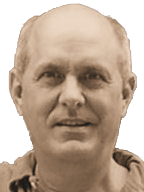

Student Computer Operator
As a result of hanging around the University of Florida Computer
Center (UFCC) so much I got a part time job as a student computer operator. At
first it only involved going out into the lobby, collecting the trays of punched
card programs, reading them into the card reader, removing the printouts from
the printer and separating them, and then going back out into the lobby and
filing them. Later I got more "advanced" and mounted tapes and disks. I would
spend hours watching the primary operator sit at the console and ask all sorts
of questions learning everything about it. The full time operators were a really
good bunch of guys (there was one woman) and we would joke and kid around a lot.
One of the more interesting operators, another student operator, was a guy
nicknamed Beetle and he and I got to be pretty good friends. Beetle had no
interest in computers, he just did it as a job. He was studying biology I think
and he was really into animals, particularly snakes. I went over to his house a
couple of times and he had made this really fantastic terrarium that had several
snakes in it. He said that he wanted to work a zoo after he graduated. About 20
years later I ran across his name in the Washington Post, he worked in the
reptile house at the National Zoo in Washington DC.
One thing I remember was this physics guy either a PhD student or professor who
we all hated to show up. He had this humongous physics program that had about
six or eight trays of punched cards a tray being about two feet long. When he
showed up you had to get a cart to carry his program to the card reader and it
would take a half hour to read them all in.
One of the best things about being a student operator is that I got a free,
unlimited computer account. I could write Fortran programs all I wanted and I
did so. I also discovered the Basic computer language. This was a
very early Basic that came from
Dartmouth University and ran in "batch mode" from punched cards. I remember working
with Beetle to write a program that search a list of words to solve some word game.
I had quite a deck of cards with words on them. Later the UF computing
center ran Darmouth Basic in "real time" on their early
timesharing terminals. I also begin to learn the IBM 360 mainframe
assembly language and tried to write a couple of simple programs on punch cards
but, I have to say, I just didn't grasp the concept assembly language at this
time. This playing around with Basic and assembly led me to getting a job
as a student programmer.